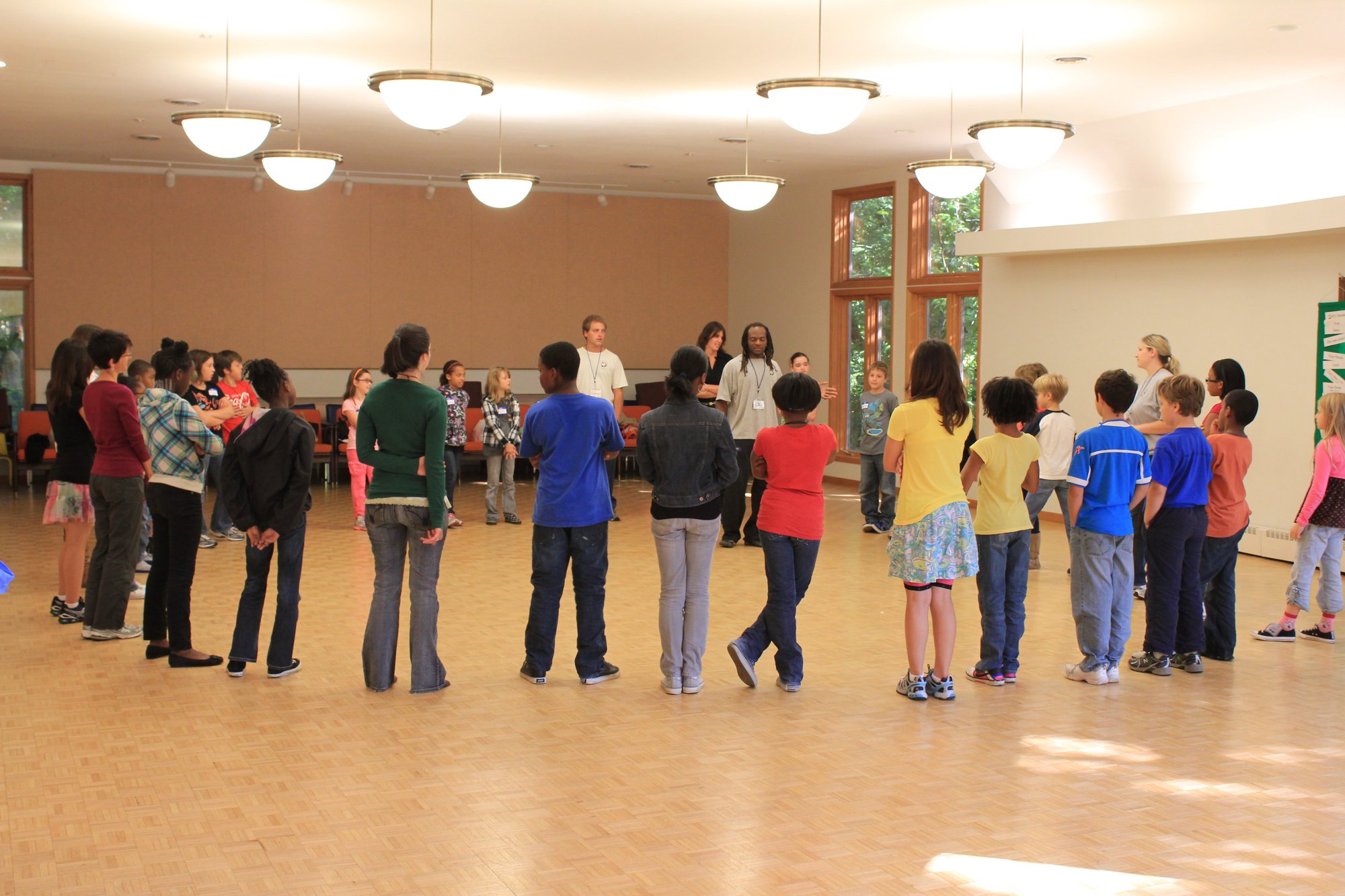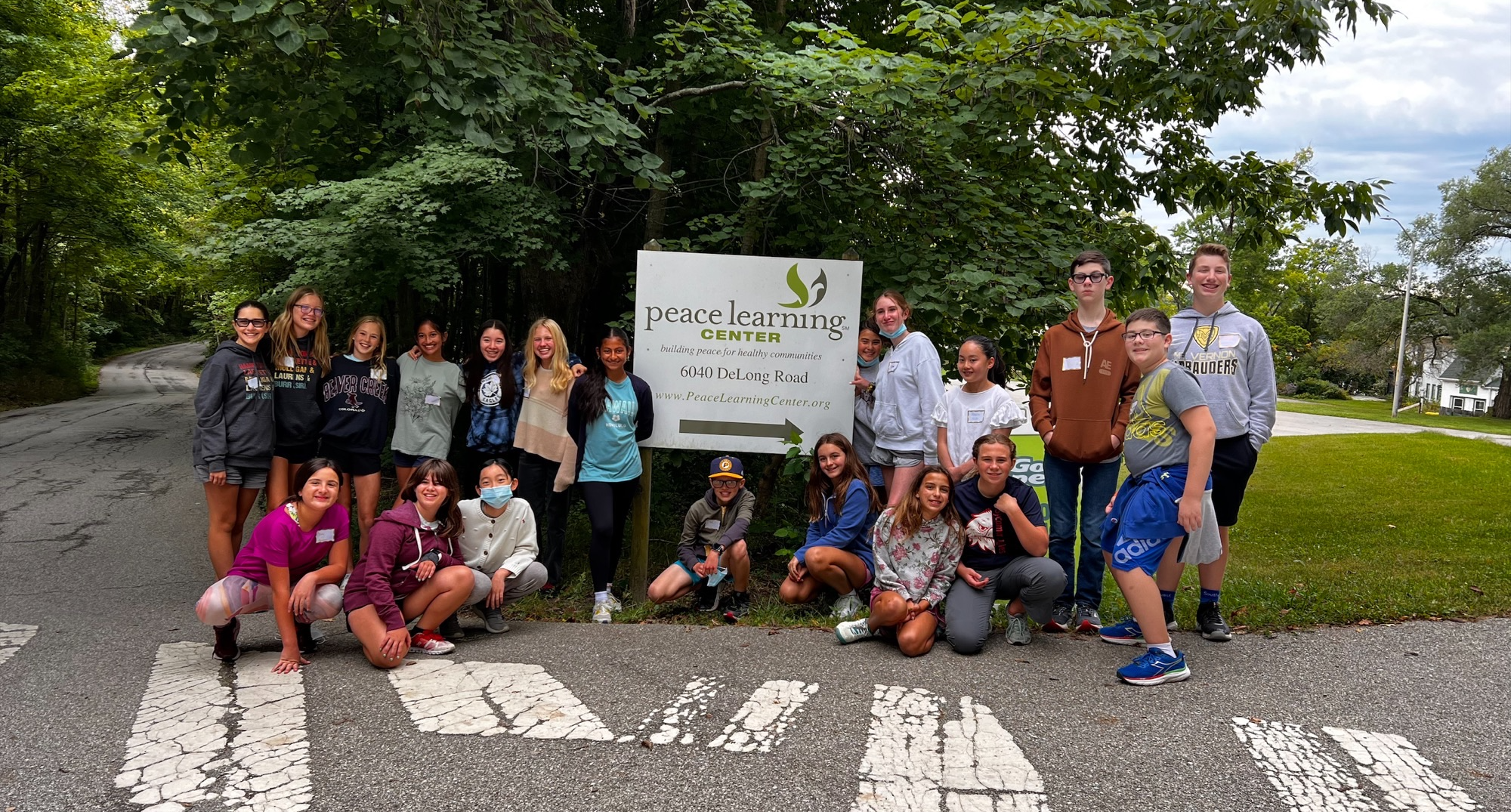Mission Statement: Peace Learning Center facilitates community learning that acts as a catalyst for peace.
Vision Statement: Our vision is a healed world where strong and caring communities strive together to fully live in peace.
It starts with the heart and radiates out. Peace begins with our ability to deal with stress, conflicts, and differences. Peace Learning Center believes everyone can be a peacemaker.
But peacemaking takes knowledge, willingness, and personal peace practices. Relationship and communication skills and conflict resolution techniques help us get there.
That is why our programs and initiatives help youth and adults learn that you are in control of what you say, think, and do and it only takes one person to start the peacemaking process.


An educational institution based in Indianapolis with world-wide reach, Peace Learning Center helps schools, community groups, and businesses build welcoming and belonging environments where everyone achieves.
From visits to our retreat center nestled in the woods next to the lake in Eagle Creek Park or learning experiences in your school or your community site, our team of facilitators meet you where you are and help guide and coach you through a process that supports you in all you do.
Take a look at what is available then contact us so we can work to deliver an experience for you and your classroom, team, and community.




